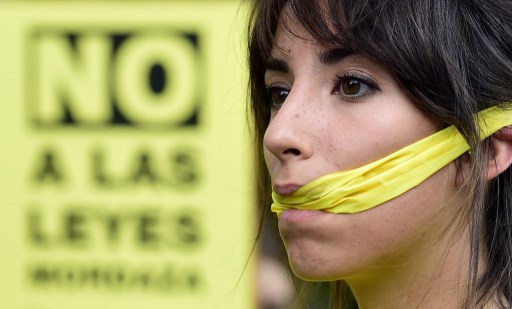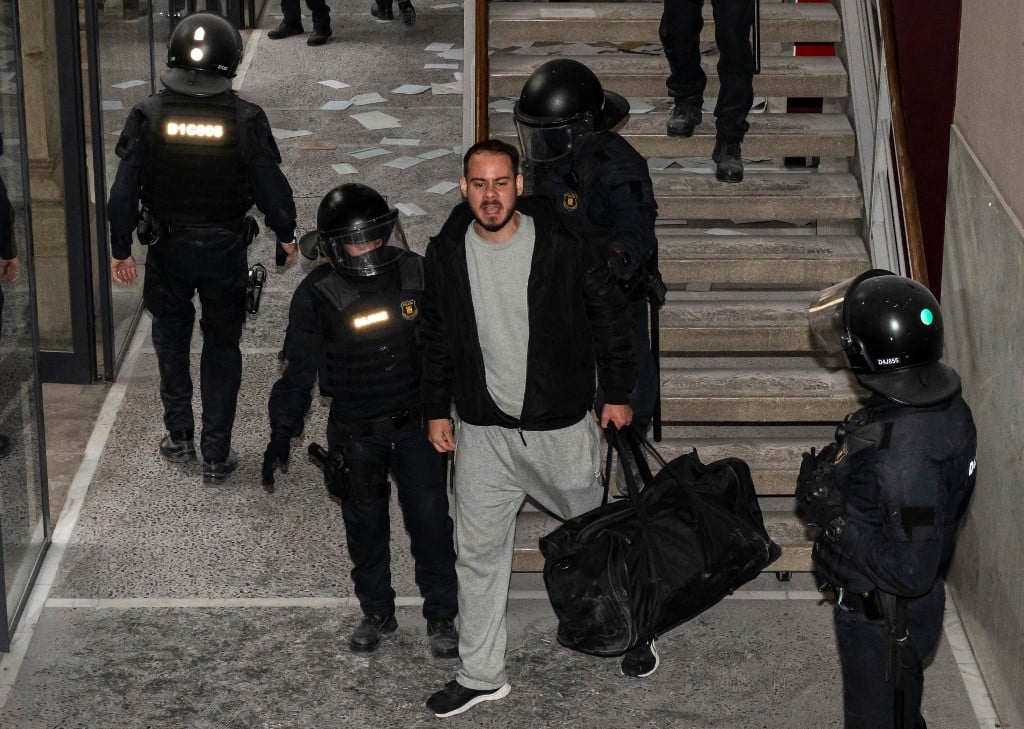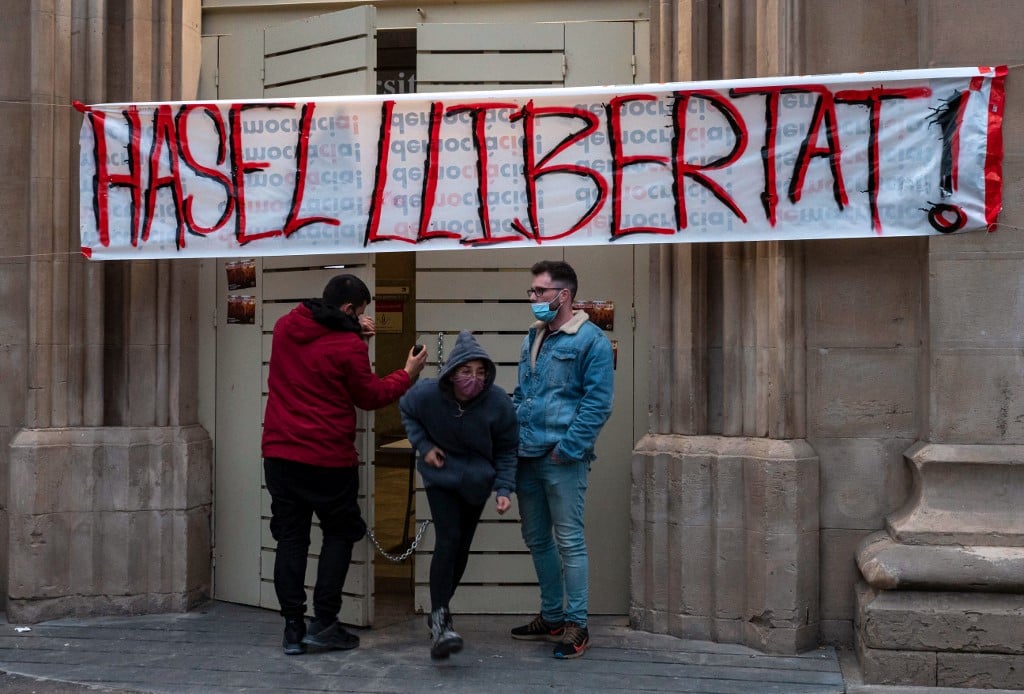
GAG LAW
Spain’s counter-terror law crushes satire: Amnesty International
In its latest report, the human rights group is calling for Spain’s “glorification of terrorism” law to be repealed on the grounds that it's silencing creativity and political satire through fear.
Published: 13 March 2018 08:47 CET

Seventy people have been jailed in Spain in the last two years for glorifying terrorism. Photo: JAVIER SORIANO / AFP
Spain’s controversial gag law, the same one that has seen everyone from rappers to puppeteers go to jail for “glorifying terrorism”, is having its desired effect, Amnesty International writes in its latest report.
Under Article 578 of the Spanish Criminal Code anyone deemed to have “glorified terrorism” or “humiliated the victims of terrorism or their relatives” faces potential fines, bans from public sector jobs and even prison sentences.
And the number of convictions has kept rising since the Article was broadened in 2015, going from three convictions in 2011 to 70 in the last two years.
“This has had a profoundly chilling effect,” the report reads, adding that it is creating an environment in which people are increasingly afraid to express alternative views, or make controversial jokes.
Titled “Tweet…if you dare: How counter-terrorism laws restrict freedom of expression in Spain”, the report exposes how many ordinary social media users and creative minds in the country are being silenced through fear.
It highlights also how the vast majority of the cases presented before a court relate to disbanded domestic armed groups ETA and GRAPO, even though the 2015 tightening of the law was introduced under the pretext of the perceived international threat from active terrorist organizations such as Al Qaeda or ISIS.
“Rapping is not a crime, tweeting a joke is not terrorism and holding a puppet show should not land you in jail,” Eda Seyhan of Amnesty International is quoted as saying in the report.
“Spain is emblematic of a disturbing trend which has seen states across Europe unduly restrict expression on the pretext of national security and stripping away rights under the guise of defending them.”

The charity’s report acknowledges that the threat of terror is real and that restricting freedom of expression in certain instances can help protect national security, but argues nonetheless that the broad and vague nature of the law is stifling artistic expression.
“The objective is to create a climate of self-censorship in the population. And they succeeded with me,” Amnesty International quoted an anonymous source who had been imprisoned for his tweets.
Url copied to clipboard!





 Please whitelist us to continue reading.
Please whitelist us to continue reading.